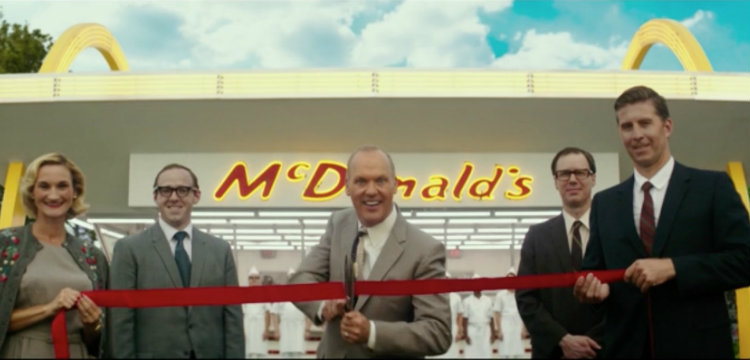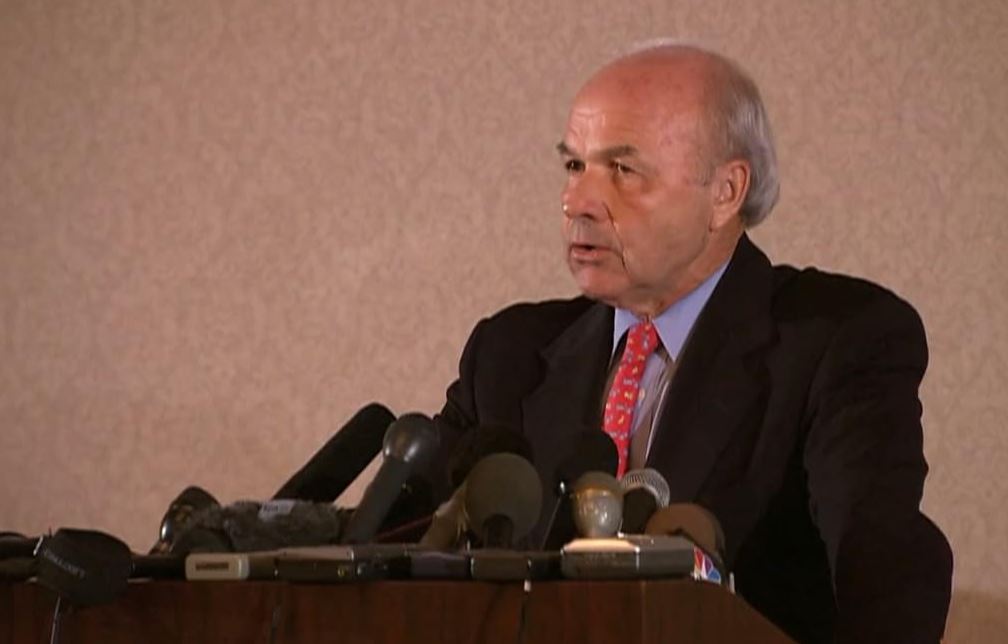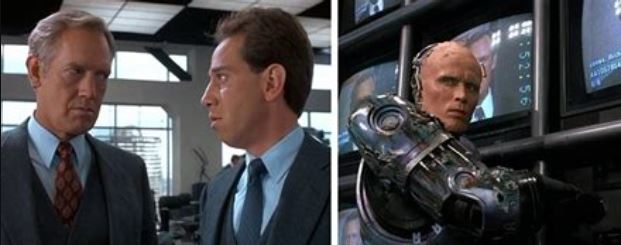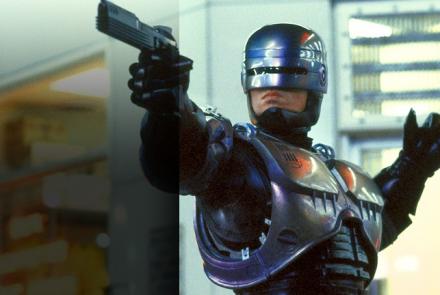
Movies generally do their best to convince us that corporations are bad. Common themes include a stratospheric level of greed, an acceptance of environmental destruction, the desire to crush rivals, ceaseless ambition, and the notion that people are disposable, especially if there’s a buck or two to be made.
Is this true?
I have no idea, but I do tend to groan whenever I see another KFC or McDonald’s pop up in my hometown. What’s more, I once invested a couple of thousand bucks in a telecommunications company only to watch the stock price fall over a depressing two-year period before I sold my crappy shares and lost a grand. To this day I’m convinced that corrupt businessmen are dining out on my precious money, if not spending their Saturday nights snorting coke off the pneumatic tits of giggling, horizontal strippers.
As for the movies, there are plenty of fun, cartoonish examples of corporate excess, such as the child-hating mask-maker Conal Cochran in Halloween III: Season of the Witch, the treacherous, dog-harming Telepod boss Anton Bartok in The Fly II, and Jonathan Pryce’s mad media mogul trying to engineer a Sino-Anglo war in the Bond outing Tomorrow Never Dies. Gordon Gekko, Wall Street’s badass, remains the gold standard when it comes to a more believable distillation of 80s commercial voraciousness.

However, for a real life example of big business fuckery I did manage to watch the Oscar-nominated Enron: The Smartest Guys in the Room. It’s a doco that shows cutthroat traders in the wholesale energy business forming the ‘biggest, baddest house in town’. Back in the 1990s Enron took advantage of market deregulation by presenting itself as a model of stability (‘The perception is the reality’). Behind the scenes, though, it was taking enormous risks, engaging in insider trading and widespread fraud while doing unbelievably stupid things, like building a massive power plant in India without realizing that the locals wouldn’t be able to afford the energy it produced. An erratic CEO, company funds winging their way into personal accounts, rogue traders, political help from the Bush administration, and the raping of California’s electricity industry through a series of rolling blackouts were just the tip of the rotten iceberg. “Enron traders were like the super powerful high school clique that even the principal didn’t dare rein in,” one observer says.
Enron became America’s seventh largest corporation (valued at almost $70 billion) but lived in a ‘financial fantasyland’ that embodied a Darwinian, testosterone-fuelled culture of pride, greed, intolerance and arrogance. When the company collapsed in the most acrimonious circumstances in 2001, twenty thousand rank and file employees lost their jobs while more than $3billion worth of their pensions and retirement funds disappeared. Narrator Peter Coyote poses the thorny question: “Was Enron the work of a few bad men or the dark shadow of the American dream?”
It’s a sobering (but entertaining) doco in which ethics, morality, hubris and a lack of sympathy are all thrown into sharp relief under the harshest of spotlights in a bid to see what important lessons can be learned from the disaster. Clearly, as a society, we need to become more egalitarian and compassionate while ending such a relentless emphasis on the almighty dollar. Hmm, yes, but apart from that: who gives a fuck about those cry-baby Yanks? Where’s the much-needed Aussie doco about the telco company that cruelly ripped a thousand bucks from my grasp?

Dick Jones and Bob Morton in Robocop (1987)
Blimey, these two are a right pair of bastards. Nothing illustrates their indifference to the loss of human life better than the classic boardroom scene in which Omni’s Division President Dick Jones (Ronny Cox) unveils the ED-209, the company’s multi-million dollar attempt to get the upper hand in fighting the city’s out of control crime while boosting police morale. It’s an enormous, indestructible robot armed with twin revolving machine guns that goes by the book and takes shit from no one. Or as Dick confidently says in the moments before it lumbers into the boardroom: “We need a 24 hour a day police officer. A cop who doesn’t need to sleep or eat. A cop with superior firepower and the reflexes to use it.”
Hailing the ED-209 as the ‘future of law enforcement’ the intimidating machine promptly malfunctions, slaughters a junior executive, and slumps into a smoking wreck. Publicly humiliated, Dick can only tell Omni’s CEO that the disastrous demo is a ‘glitch’ and a ‘temporary setback’.
Bob Morton (Miguel Ferrer), though, is even more callous. He’s a snake in the grass, powering through life with a glower on the outside and a sneer on the inside. A brown-noser when necessary, he embodies the arrogance of youth and is usually so unfriendly that the phrase I’m out for myself might as well be branded on his forehead. Thirty seconds after his colleague has been machine-gunned he buttonholes the CEO in a bid to get his alternative Robocop program up and running. Dick, of course, tries to block this junior Macbeth, but the CEO gives him the green light as he’s confident of having a (face and money-saving) substitute on the market in ninety days. A jubilant Bob tells his co-workers: “You see an opening and you go for it… Fuck Jones. He fumbled the ball and I was there to pick it up.”

Shortly afterward a Detroit police officer is killed, giving Bob the ideal opportunity to transform the slain cop into a heavily armed cyborg. Not once does Bob see this ‘bastard creation’ as anything other than a money-making, career-advancing prototype. He even has the poor dude’s sole remaining arm amputated so he can be more automated and efficient.
After Robocop proves an outright success in the field, it’s clear Bob is well and truly on the way up. Promotion, the keys to the executive lounge, and coke-snorting trysts follow, a rapid rise that doubtless makes him disregard the earlier advice he received that Dick is a ‘real shark’ who will ‘make sushi’ out of him. “He’s got this killer rep, but it’s a smokescreen,” Bob loudly remarks in the men’s room. “He’s a pussy.”
Tut-tut, Bob, it’s pretty obvious this Dick is no pussy.
Their subsequent tussle to see who’s got the ‘nastiest sac of venom’ (as the lovely Chad from In the Company of Men might remark) provides a terrific sub-plot for this ever-watchable slice of action sci-fi.
Leave a Reply